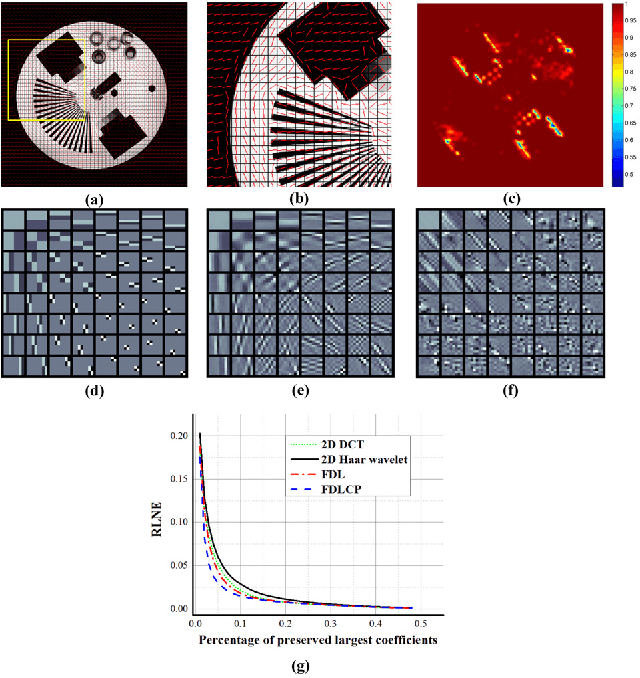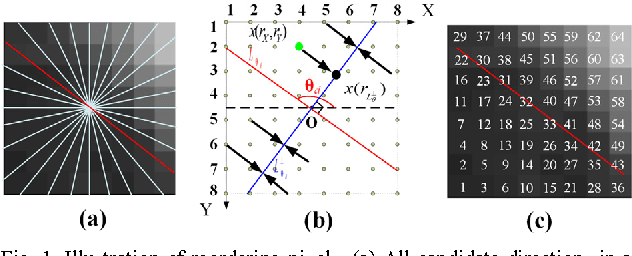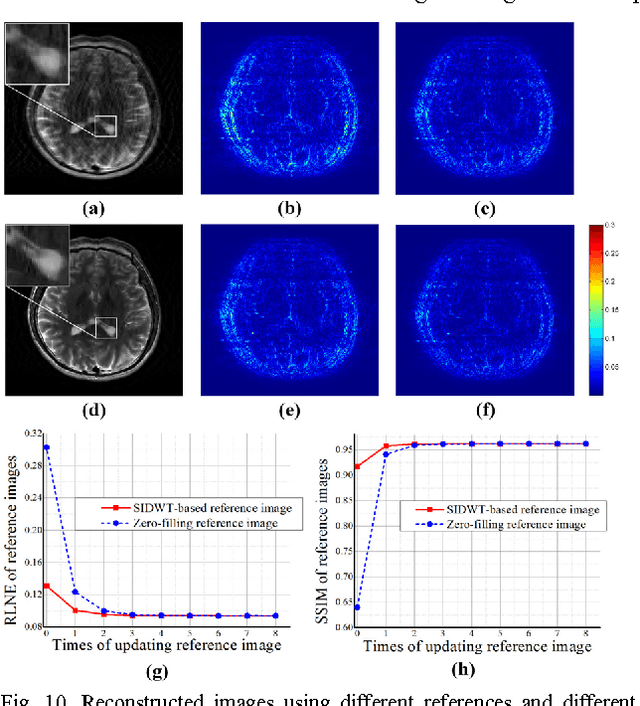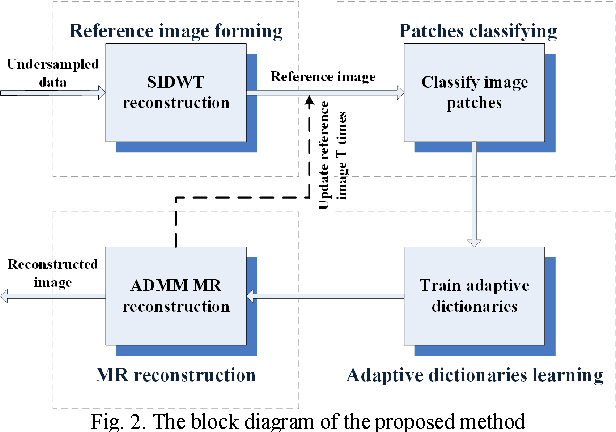Fast Multi-class Dictionaries Learning with Geometrical Directions in MRI Reconstruction
Paper and Code
Nov 20, 2015



Objective: Improve the reconstructed image with fast and multi-class dictionaries learning when magnetic resonance imaging is accelerated by undersampling the k-space data. Methods: A fast orthogonal dictionary learning method is introduced into magnetic resonance image reconstruction to providing adaptive sparse representation of images. To enhance the sparsity, image is divided into classified patches according to the same geometrical direction and dictionary is trained within each class. A new sparse reconstruction model with the multi-class dictionaries is proposed and solved using a fast alternating direction method of multipliers. Results: Experiments on phantom and brain imaging data with acceleration factor up to 10 and various undersampling patterns are conducted. The proposed method is compared with state-of-the-art magnetic resonance image reconstruction methods. Conclusion: Artifacts are better suppressed and image edges are better preserved than the compared methods. Besides, the computation of the proposed approach is much faster than the typical K-SVD dictionary learning method in magnetic resonance image reconstruction. Significance: The proposed method can be exploited in undersapmled magnetic resonance imaging to reduce data acquisition time and reconstruct images with better image quality.
 Add to Chrome
Add to Chrome Add to Firefox
Add to Firefox Add to Edge
Add to Edge